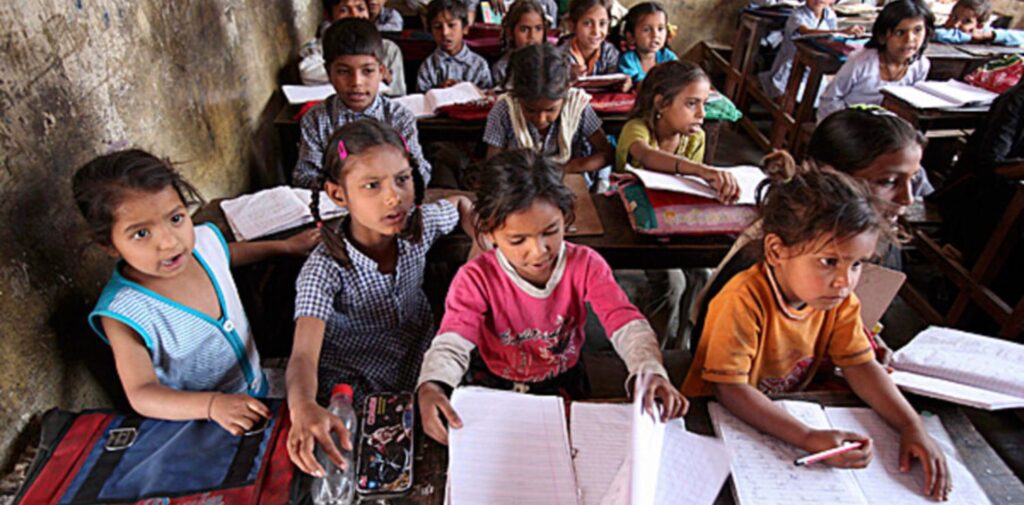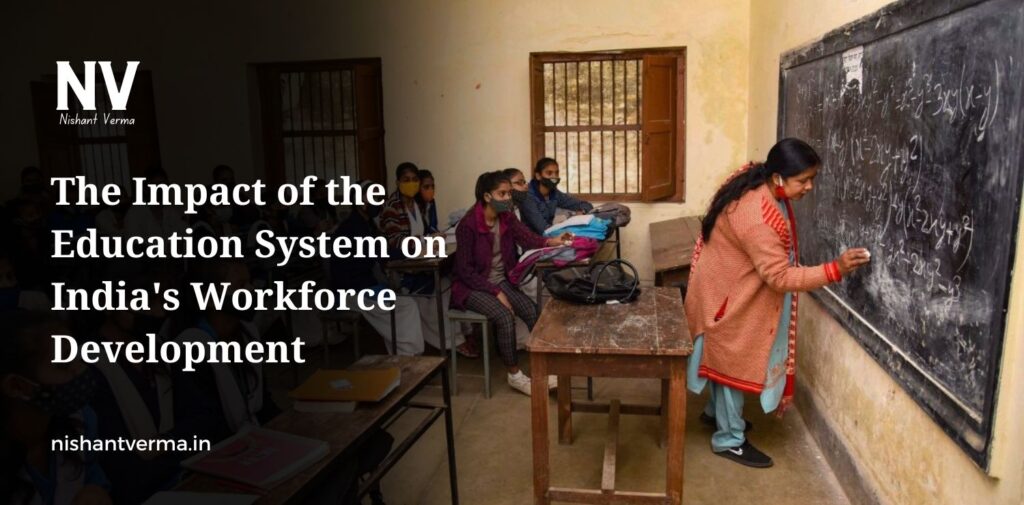India is one of the largest and fastest-growing economies in the world, but this growth is closely connected to how well its workforce is educated. Education is one of the most important tools for shaping the future of the country and its people. Over the years, the education system in India has played a major role in developing the skills of its people, creating job opportunities, and helping build a stronger economy.
In this article, we will explore how India’s education system has shaped the country’s workforce, and why it is so important for the growth of the nation. We will also look at the challenges faced by the education system and how improvements in education can lead to a better future for everyone.

What is Workforce Development?
Workforce development refers to the process of preparing individuals to enter the workforce and succeed in their jobs. It includes teaching people the skills they need to work in different industries and ensuring that they have the knowledge to contribute to society. Workforce development helps build strong economies, better living standards, and higher quality of life for people.
In India, the education system is a key part of workforce development. It is responsible for providing the skills and knowledge that people need to succeed in various fields like healthcare, technology, agriculture, engineering, and many others.
How Does Education Shape the Workforce?
The education system in India is like a bridge that connects young people to their future jobs. It helps them learn basic skills, like reading and writing, as well as more advanced skills, like problem-solving, teamwork, and technical knowledge. Let’s explore some important ways education impacts workforce development in India.
- Building Basic Skills for Everyone: In India, education begins with primary school, where children learn basic subjects like math, science, language, and social studies. These subjects lay the foundation for further learning and help students build essential life skills. Without basic education, it is hard for people to get jobs or grow in their careers. For example, someone who cannot read or write will struggle to find a good job. Therefore, the more children are educated, the stronger the workforce becomes. This is why India’s government focuses on making sure every child has access to education.
- Higher Education for Specialized Jobs: As people grow older, they can choose to continue their education and pursue higher studies in fields like medicine, engineering, law, business, and technology. Higher education prepares individuals for specialized jobs that require more advanced skills. In India, many young people aim to attend universities and colleges to study subjects that interest them. These institutions provide them with the knowledge and skills needed to excel in their careers. For instance, an engineer or doctor requires years of study and training, and without proper higher education, it would be difficult to perform these jobs effectively.
- Vocational Education and Skill Development: While higher education is important, not everyone has the opportunity or desire to pursue university degrees. This is where vocational education comes in. Vocational education focuses on practical skills needed for specific jobs, like carpentry, plumbing, cooking, and more. India’s government has also focused on promoting skill development programs to train people for jobs in industries like construction, retail, and hospitality. These programs help people learn the skills they need to work in various fields and improve their chances of getting good jobs. By offering vocational education, India can train more people for different types of work and reduce the skills gap in many industries. This is important because a strong workforce needs people with both academic knowledge and practical skills.

Challenges in India’s Education System
Despite the many successes of the education system, there are still several challenges that need to be addressed to improve workforce development in India.
- Quality of Education: While more children are going to school today than ever before, the quality of education varies across the country. In some parts of India, schools are overcrowded, and teachers may not be well-trained. In rural areas, schools may not have the same resources as those in urban areas. This difference in quality affects how well students learn and, in turn, impacts their future careers. A student who receives a poor education will struggle to compete with others for good jobs.
- Unemployment and Underemployment: Even though many people are educated, there is still a high level of unemployment in India, especially among young people. One of the reasons for this is that the education system sometimes does not provide the right skills needed by employers. For example, many students graduate from college with degrees in fields where there are few job opportunities. On the other hand, industries like technology, healthcare, and manufacturing require workers with specific technical skills. If the education system does not keep up with the changing demands of the job market, graduates may find it difficult to get jobs that match their skills.
- Access to Education: While India has made great progress in ensuring that more children go to school, there are still many areas where education is not easily accessible. Children living in remote villages or areas affected by conflict may not have the same opportunities to attend school as children in cities. Moreover, financial constraints can prevent many families from sending their children to school or paying for college education. This inequality in access to education limits the potential of many young people and reduces the number of skilled workers in the workforce.

The Way Forward: Improving Education for Workforce Development
To improve workforce development in India, several steps can be taken to make the education system more effective and inclusive.
- Focus on Skill-Based Education: India needs to place more emphasis on skill-based education. This includes not only academic knowledge but also practical, job-specific skills. Vocational training, along with higher education, can help fill the gaps in the workforce. By offering more opportunities for people to learn practical skills, we can create a more diverse and skilled workforce.
- Better Quality of Education: Improving the quality of education is crucial for preparing the next generation of workers. This can be done by ensuring that teachers are well-trained, schools are adequately funded, and resources are available to all students, no matter where they live. Quality education will help students develop the knowledge and confidence they need to succeed in their careers.
- Public and Private Sector Collaboration: Collaboration between the government and private companies can help align education with industry needs. By working together, the education system can adapt to the changing job market, ensuring that students graduate with the skills employers are looking for.
- Access to Education for All: It is important that every child in India, regardless of where they live or their family’s income, has access to a quality education. The government can work towards improving infrastructure in rural areas and providing scholarships to help low-income families send their children to school.
Conclusion
India’s education system plays a critical role in shaping the workforce and the future of the nation. By providing children with the skills and knowledge they need to succeed in life, the education system helps build a strong and competitive workforce. However, challenges like the quality of education, unemployment, and access to education still need to be addressed.
If India focuses on improving its education system and ensuring that all students are prepared for the future, the country will be able to harness the full potential of its people and continue to grow as a global economic power. Education is not just the key to individual success, but also the foundation for a stronger, more prosperous India.




